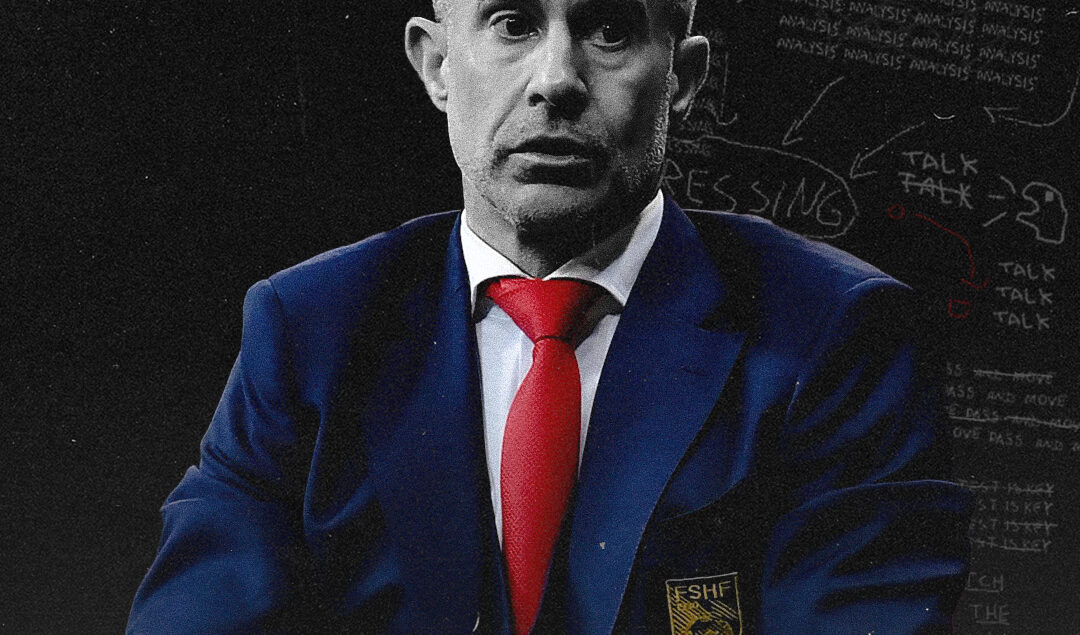The Flying Eagles: The Story of Albania’s EURO 2024 Run
When Albania manager Sylvinho was asked about the upcoming games that could see the team reach their second-ever EUROs, he said bluntly; “There are three finals ahead of us.” Truer words couldn’t have been spoken. Just three years prior, Albania fell short of qualifying for the tournament in a group that included France and Turkiye. This time though, the Shqiponjat can smell blood.
The group that Albania was placed in this time around was arguably a better group – but Albania were arguably a better team than at the turn of the decade. Poland and Czechia are formidable, but after 6 games played and only two games left, Albania sit top of the group. And with a glance at the squad, it’s not too hard to see why. Veteran goalkeeper and captain Etrit Berisha has spent most of his career in the Italian top flight, rotating between a first-choice and backup goalkeeper.
Young prospect Mario Mitaj plys his trade in Russia for Lokomotiv Moscow, and adds another attacking outlet from wingback; on the opposite flank is Albania’s most well-known player, Elseid Hysaj, who has been a Serie A regular for going on a decade. Centre-back Berat Djimsiti can say the same, becoming a key player in Gian Piero Gasperini’s Atalanta side who have battled for European competition.
The midfield contains arguably Albania’s two biggest talents, Kristjan Asllani and Swiss-born Nedim Bajrami. Asllani is an intelligent and composed player at 21, reminiscent of players such as Jorginho. Bajrami is a well-rounded player who came through at Grasshoppers Zürich, with a skill set that allows him to play all over the midfield.
Up front is where the team arguably looks weakest, with most of their attacking threat coming from players outside the top 5 leagues. Right-winger Jasir Asani has arguably become the scoring hotshot of this team for the qualifying game, with 3 goals in 6 games. Sokol Çikalleshi has found himself up top most out of any striker; the veteran functions primarily as a target man, allowing the wingers to burst into space on the counter.
For the purpose of this article, I watched Albania’s recent win against Czechia, which they won 3-0 after the Czechs went down to 10 men. Albania are a varied team in formation, having used many in their qualifiers so far, but their playing style tends to be similar. Out of possession, Sylvinho has the team playing compact in a relatively deep block which can either be a 5-3-2 or a 4-4-2.
This is where the team has most of their success – Czechia tried persistently to play the ball centrally into the box, but Albania simply had too many men in the box time and time again. Intense pressing from Albania was fairly rare, as the only times they looked to press throughout most of the game was when a Czech player initially received the ball. Instead, they looked to limit the 3-man defence from making passes out to wide outlets; the wingers pressing triggers started with balls going out to either David Jurásek or Vladimír Coufal.
Going forward, the team looked to build up in a 4-2-4 or a 2-4-4, with Bajrami fairly free to roam between the midfield and becoming a strike partner. These tactics proved successful – the first goal was scored off of a counter-attack, with a beautiful left-footed goal from Jair Asani, who cut in from the wing to place the shot perfectly.
Albania’s second and third were scored after the Czech team went a man down, Taulant Seferi scoring a brace from only three shots. This match showed a willingness to be patient from Albania, and trusting their deep block to do the dirty work – and it would be unfair to say that it hasn’t worked a treat for the Eagles.
The initial Sylvinho quote was said prior to the Czechia game – and so for Albania, only two finals remain. Both of these games come against group minnows Moldova and the Faroe Islands, ranked 159th and 131st in the world respectively compared to Albania’s placement of 62.
With this team, and young players to replace the aging veterans, such as Chelsea striker Armando Broja – who missed the qualifiers due to a terrible injury he sustained last summer – and Thomas Strakosha, who will be looking to turn around his career and replace Berisha following a promising start at Lazio, now finding himself backup goalkeeper for Brentford, and for his country.
This squad really have clicked at the right time, with the right manager, and probably haven’t had a squad this good in their history. There’s real hope for Albania going into the EUROs next year – and it’s up to the fountain of youth to carry the legacy on.
By: Jude Short / @Jayesse66
Featured Image: @GabFoligno / Adam Nurkiewicz – UEFA
